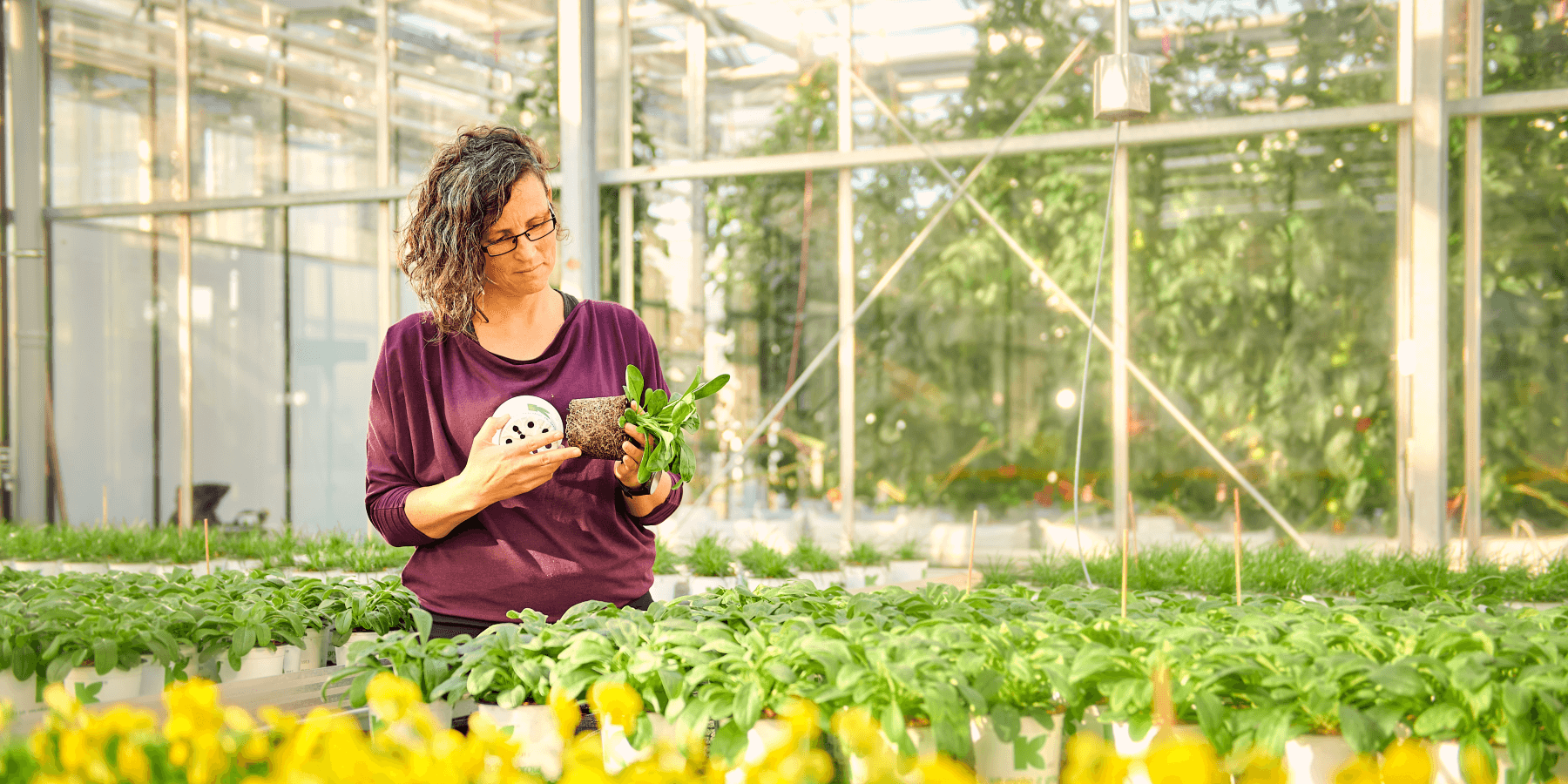Expertise as the key to success
Technical advice in horticulture
Sound technical knowledge is essential for success in modern horticulture – which is why Klasmann-Deilmann supports its own customers with an international team of technical consultants. Our technicians support horticultural businesses worldwide and develop tailor-made solutions that take into account regional characteristics and individual challenges.
International presence and local expertise
Each Klasmann-Deilmann technical consultant is responsible for a specific region of the world, from Germany and France to Asia and the Middle East, North and South America and African countries. This regional division makes it possible to respond precisely to differences in climate, cultivation methods and market requirements. Direct dialogue with local customers and distributors helps us to understand current challenges and develop tailor-made solutions,” says Anja Fritzen, team leader of Technical Consulting at the Geeste headquarters. The close dialogue between technicians within the company, especially with the R&D and quality management departments, as well as with colleagues directly in our factories and factory laboratories, ensures that our products always meet the highest standards and are continuously improved.
The role of alternative raw materials
The increasing demand for peat-reduced and peat-free substrates brings new challenges. Each crop reacts differently to substrate adjustments,’ explains Anja Fritzen. We work closely with our customers during the gradual changeover and, for example, adjust the nutrient supply in the substrate individually if necessary.
Klasmann-Deilmann has introduced the ADVANCED range of substrates for this purpose. Developing these modern, more sustainable recipies with more alternative raw materials requires a deep understanding of the properties of different raw materials and their influence on crop management. GreenFibre already accounts for around 50 per cent of our mix of alternative raw materials. Next to peat, wood fibre is therefore our most important international raw material for ADVANCED substrates,’ explains Anja Fritzen. We only use coniferous wood for production, which is particularly suitable for substrate production.
Adjustments to fertilisation and irrigation
The use of alternative raw materials poses specific challenges. Their different properties in terms of structure, water holding capacity and nutrient dynamics must be carefully considered in order to produce substrates that are crop-secure. At the same time, many alternative raw materials have positive horticultural properties that growers can exploit.
Adjustments to fertilisation and irrigation are essential when switching to peat-reduced or peat-free substrates. „Our recommendation is to always make the change gradually and not to go straight from 100% peat to 100% alternatives. This makes the conversion process safe,“ explains Anja Fritzen. „We closely support our customers in this process by analysing their cultures on site and giving individual recommendations.“
To facilitate the transfer of knowledge, Klasmann-Deilmann also provides regular training for local sales partners in each country. Special attention must also be paid to the use of alternative raw materials in press pot substrates. These substrates must be able to be formed into stable press pots and ensure uniform water absorption. „The development of press pot substrates requires very close coordination with our customers, as each company has different requirements,“ explains Anja. „Thanks to this close dialogue, we can continuously develop these recipes to achieve the best results.“
The future of technical advice
The demands on modern horticulture are becoming increasingly complex. Climate change, increasing demands for sustainability and a shortage of skilled labour are forcing adjustments in the substrate sector, and therefore more intensive technical advice. „Our customers need to be able to grow with confidence, and we can only guarantee this through in-depth knowledge and continuous training on all aspects of the modern ADVANCED generation of substrates,” says Anja Fritzen.
The increasing use of alternative raw materials means that irrigation, nutrition and cultivation need to be coordinated even more closely. At the same time, the need for mechanisation and automation in horticultural businesses is increasing as fewer skilled workers are available. To make this possible, substrates and plants need to perform in highly mechanised operations – a challenge that requires consistently high substrate quality and precise crop management.
In the future, it will therefore be even more important to impart knowledge effectively. Klasmann-Deilmann is increasingly focusing on training for customers and partners, as well as close on-site consultation. „Our job is not only to supply growers with high-quality substrates, but also to help them achieve the best possible results with them,” says Anja Fritzen. The combination of technical expertise, practical experience and individual advice will therefore be a key success factor for horticulture in the future.
